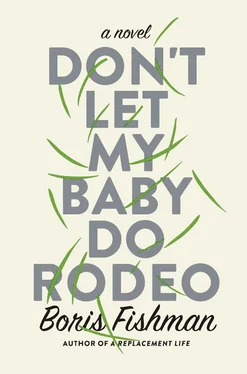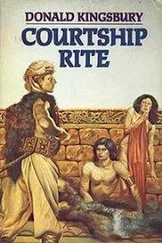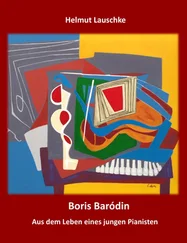Raisa cleared the table while the men dispersed. Maya sat staring out the window, pretending she still had coffee to finish. It was time to switch the flower water, though the petals were molding and puckering beyond help.
“You’re going to hurt yourself, honey,” Maya said to her son, still serrating away at the cereal box. “Want to come for some errands?” She leaned toward him. “You’ll have the front seat.”
Max kept sawing, as if he hadn’t heard her. “Honey,” she said again. He put down his knife, slid out from under the table, and went into the hallway to find his sneakers.
For three weeks, Max had been quiet. Maya had spent them on the Internet, researching dissociative episodes. They were a kind of sleepwalking — the individual was functional and alert, but obeying a different mental channel. The descriptions terrified her. Her mind pictured a dissociative affliction as an invisible gas, a cellular sickness. Bumps, scrapes, bruises, and pimples: She could get all those out. Cutaneous infections unnerved Alex — he would worry pimples, moping until they went away — but she had a medical specialist’s equanimity toward innocuous things. Things Alex could not see, he dismissed, whereas they were what terrified Maya.
When she wasn’t at work or in front of the computer, Maya shadowed Max. She was clandestine not only from him, but her husband, who seemed intent on regarding continuing panic as a personal treason. Maya found an unspoken ally in Raisa. School having ended, Maya canceled her son’s morning camp, saying she wanted him to spend more time with his grandmother. “Anything?” Maya would inquire fearfully of Raisa upon walking in after work. “Nothing, daughter, stop your worry!” Raisa would exclaim from the floor, where she was demolishing Max at cards. For the welfare of her loved ones, Raisa would give away not only the chocolate in her mouth, but the tongue that was working it — with the exception of cards. A great, unsparing beast emerged when Raisa Rubin took cards in her hands; even an eight-year-old got no mercy. Maya wished to believe her mother-in-law and could not. She slept poorly.
Saltz, the pediatric psychiatrist, Maya did not dare contact — because she did not want to antagonize Alex, or because she didn’t want to hear what he might tell her? Then she was seized by an alternative idea. Was it crazy? Maybe it was imaginative more than crazy. If she were found out, for some reason she felt she would have less to answer for than if she had contacted Saltz. Saltz was a betrayal. But Madam Stella — Madam Stella was just Maya being Maya. The Rubins would understand — they avoided the corners of tables, the stepping over of each other’s legs, the unfurling of umbrellas indoors.
Maya had her own reason. She had been five, playing in the kitchen doorway as her mother swept the floor. Her mother yowled: There was a mouse behind the radiator. Startled by the broom, the mouse scurried out, ran chaotically in several directions, and vanished again. Maya shrieked and began stomping her feet. She tore off her underwear and T-shirt and stood naked, shivering and screaming. Her mother dropped the broom and rushed to embrace her. By that evening, they were on their way to — Tamara? Fatima? a Gypsy name — the two hexed clothing items in a grocery bag her mother held between the tips of two fingers.
The healer, who was young, tall, and heavily boned, looked nothing like the old, gaunt Gypsy women at the market, and her home looked exactly like the Shulmans’: doors of frosted glass, a wall unit, and the wallpaper with bicyclists by a lake. She even wore what her own mother wore, a tracksuit, the soft protuberance of a belly distending the elastic. Her oval face, dark except for slightly eerie eyes of sea green, was beautiful, but the way a horse is beautiful. Maya wondered if she had a Maya. How could she heal someone else’s daughter if she did not have one of her own?
It was only later, on the walk home, that Maya realized that the woman had not touched her. At first, Maya felt discouraged by this, as if there was something so wrong with her that the woman could not risk catching it. But the terror that Maya experienced that afternoon was no longer causing the same misery in her stomach. And all it had taken was — the woman had extracted Maya’s T-shirt and underwear from the grocery bag (she touched them without fright), whispered to them softly, as if Maya and her mother were not in the room, then rubbed both with water from a long-necked glass bottle, then smiled generously and returned the items, though Maya knew her mother would throw them out just in case. When would they need to return? Maya’s mother asked. They wouldn’t, the woman shook her head kindly, and Maya desperately wished for her to have a girl sometime soon.
Now, in the car, worry fingered Maya’s chest: The drive to Madam Stella’s would take her and Max slightly beyond town, and — for two exits — down a highway she had never driven before. A second worry: How would she explain their destination to Max? They were receding farther and farther from the hardware store. Max pointed this out, but without alarm; it had taken her some time to understand that Max didn’t need to get his way, only declare his position. She said she would get it on the way back. He shrugged and didn’t ask on the way back from where.
New emergencies — a sick child, a deceived husband — humble the old; Maya managed the highway without trouble. She had found the gate of the botanical gardens on whose grounds Madam Stella had somehow acquired property without having to stop and ask for elaboration on the instructions the Madam had given her over the phone. But the gate was closed and the two guards assigned to it inspected the Corolla with doubt. It was a private gardens bequeathed to the township by a chemist who had participated in the discovery of antihistamines — so the plaque mounted on the gate said. It was closed on Saturdays. Maya consulted the paper crumpled in the ashtray — Saturday 12:00—but this did nothing to sway the guard in her window. He had a scar by his left eye and she did not want to contradict him.
They heard rustling up ahead. A dark gray mastiff was hurtling down to the gate. Behind him waddled the Madam, because if not the Madam, who would be wearing a sun-colored sari hemmed with coins in the middle of a private botanical garden? “Down, down,” she waved at the gate, unclear if she meant the mastiff or the guards. Both obeyed, the animal unraveling into a dung-colored slick by the gate and the guards rolling open the bars.
“I was lovers with the son,” the Madam breathed into Maya’s window after the gate had closed behind the Corolla. Maya smelled cigarettes, lipstick, mint. She looked over at Max — he did not need to hear such confessions — but his eyes were fixed on the mastiff. Madam Stella had colored outside the lines with her lipstick; her eyelashes clumped together when she blinked so that for the briefest moment she seemed at risk of falling asleep. “Follow me,” she said, and jangled up the drive.
“Where are we going?” Max said as his mother inched after the Madam.
“It’s a game,” Maya said, trying to sound excited.
Two hundred feet later, they arrived at a two-story pastel-yellow home with two entrances that Madam Stella shared with a workman’s family, their rent reduced but hers subsidized in full in perpetuity thanks to her seduction of the chemist’s son. The faint yellow, which recalled an overmilky omelet, was the color of the grand residences and palaces lining the embankment of the Neva in St. Petersburg, the wan yellow of aristocracy, and Maya was transported for a vanishing moment back to the Soviet Union, even though she had never been to St. Petersburg. Those palaces were property of the international imagination.
Читать дальше












